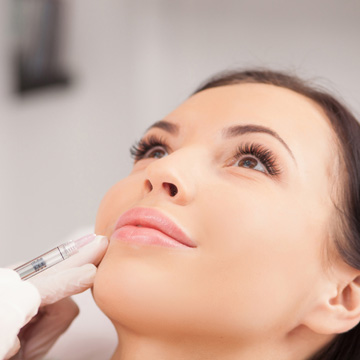 Serving patients of Erwin, Jonesborough, and Greeneville TN
Serving patients of Erwin, Jonesborough, and Greeneville TN
Most people, when they hear the term Botox®, don’t think about going to the dentist. While this injectable is commonly associated with reducing wrinkles, it also has become increasingly popular to use alongside dental treatments of all kinds. Botox® has been around for nearly 20 years and continues to rise in popularity as a way to fight the signs of aging. But, Greeneville dentists Drs. Craig Shepherd and Nathaniel Renner offer Botox® to help patients in a variety of ways. Take a look at how we use Botox® at Tusculum Dental Care, and if this procedure may be right for you.
Treating jaw or facial pain
One prime benefit of Botox® is to relax muscles, which could directly benefit a patient dealing with temporomandibular joint (TMJ) disorder or bruxism (teeth grinding and clenching). Both of these disorders result in tense and inflamed muscles, which tend to lead to reoccurring pain. Using Botox® to treat either condition will require less solution that would be needed when treating wrinkles. Patients who receive Botox® for jaw or facial pain report that their pain significantly decreases or goes away entirely after treatment. We would like to stress that using Botox® in patients with TMJ disorder or those dealing with bruxism is not a cure for either, but more of a palliative approach, which just means the treatment will help relieve symptoms but isn’t a long-term fix for the underlying problem.
Better adjust to wearing dentures
If you are new to wearing dentures, you probably are dealing with the adjustment period. While some denture wearers get through the adjustment period rather quickly, others may have a difficult time getting used to their new teeth. This is where Botox® may come in handy. Botox® contains a medical-grade toxin called Clostridium Botulinum, which actually weakens the muscles through its temporary nerve blocker that inhibits the muscle’s ability to release acetycholine, which leads to temporary paralysis and is helpful for patients who struggle to get used to wearing dentures. If done correctly by an experienced doctor, these injections are incredibly safe and effective.
Other uses for Botox® in dentistry include:
- Orofacial Myofunctional Disorders
- Myofascial Pain
- Trismus (lockjaw)
- Hypermobility (jaw joint dislocation)
- Masseter and temporalis hypertrophy (temporary paralysis of the jaw muscles)
- Headaches (reoccurring from TMJ disorder)
How long does the process take, and is it right for me?
Most injections can be completed in a short appointment, about 15 to 20 minutes. Results can last up to six months. To determine if Botox® injections are right for you, consider scheduling a consultation with us at Tusculum Dental Care by calling (423) 639-7575. Our dentists can assess your concerns and determine if the injections are right for you.
Non-surgical methods of Botox®
Your dentist may recommend Botox® to enhance your smile after receiving a smile makeover or other cosmetic dentistry. Or, maybe you simply want to reduce signs of aging or wrinkles around your eyebrows, eyes, forehead, and mouth. Your Greeneville dentists are qualified to administer these injects because of their keen awareness and experience in dealing with nerves of the face and mouth.
Botox® from dentists in Greeneville
To learn more about the use of Botox® in dentistry, we encourage you to look at this in-depth study from the National Institutes of Health. You also can schedule a consultation with us to learn more. We welcome patients of Erwin, Greeneville, and Jonesborough.

